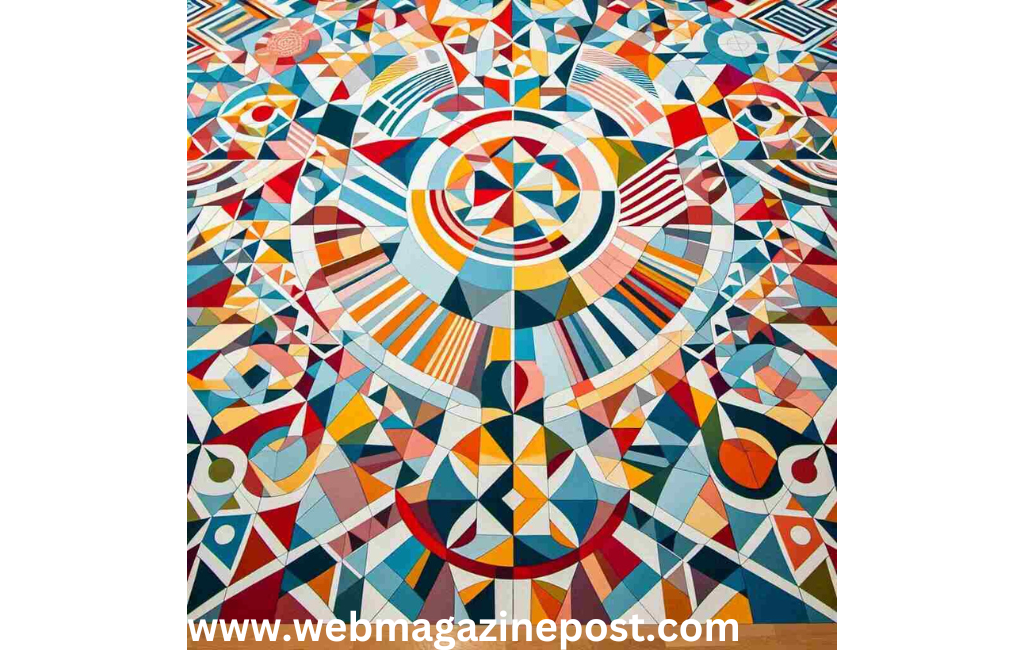
Geometry Spot : 100% Exploring the Fascinating World of Geometry Spot
Introduction to Geometry Spot
Geometry is more than just a branch of mathematics—it’s a lens through which we view the world. Geometry Spot is an innovative online platform designed to bring the principles of geometry to life. Whether you’re a curious student, a seasoned educator, or just someone with a knack for shapes and patterns, this tool has something for everyone.
The Basics of Geometry
Definition and Key Concepts
Geometry explores the properties and relationships between points, lines, surfaces, and shapes. It’s all about understanding the space around us, from the simplest triangle to the most complex 3D structures.
Historical Origins of Geometry
Dating back to ancient civilizations, geometry was pivotal in constructing pyramids, mapping lands, and even in celestial navigation. The Greeks, with luminaries like Euclid, established it as a structured field of study.
Why Geometry Spot is a Game-Changer
Geometry Spot takes a modern approach to learning. Combining traditional geometry principles with state-of-the-art technology simplifies complex ideas and makes them accessible to everyone.
Key Features of Geometry Spot
Geometry Spot is a cutting-edge platform that redefines how geometry is learned, taught, and applied. Its innovative features are designed to cater to learners and educators alike, ensuring a comprehensive and enjoyable experience.
1. Interactive Tools and Resources
Geometry Spot offers a suite of interactive tools that make learning geometry an engaging process. These include:
Drag-and-Drop Shapes: Easily manipulate geometric figures to explore their properties.
Dynamic Graphing Tools: Visualize equations and transformations in real-time.
Measurement Features: Accurately calculate angles, lengths, and areas directly on the platform.
2. Visual Learning Aids
Understanding geometry often requires a strong visual component. Geometry Spot excels in this area with:
3D Modeling Tools: Explore 3D objects like spheres and pyramids interactively.
Color-coded diagrams: Simplify complex concepts with clear visual distinctions.
3. Accessibility for Different Learning Levels
Whether you’re a beginner or an advanced learner, Geometry Spot has something tailored for you:
Basic Tutorials: Step-by-step guides for foundational concepts.
Advanced Modules: Deep dives into complex topics like fractals and non-Euclidean geometry.
4. Gamified Learning Experience
Who said learning geometry couldn’t be fun? With Geometry Spot, you can:
Take Quizzes: Test your knowledge with interactive questions.
Complete Challenges: Solve puzzles and earn rewards for your progress.
5. Cross-Platform Compatibility
Learning on the go has never been easier:
Mobile-Friendly Interface: Access Geometry Spot from your smartphone or tablet.
Cloud Integration: Save your progress and sync across devices seamlessly.
6. Collaborative Features
Learning is better together! Geometry Spot fosters a sense of community with:
Forums: Share ideas and ask questions with fellow users.
Group Projects: Collaborate on tasks with peers in real-time.
7. Educator-Friendly Tools
Geometry Spot is not just for students; it’s a valuable resource for educators too:
Customizable Lesson Plans: Design lessons suited to your teaching style.
Interactive Classroom Activities: Engage students with live problem-solving sessions.
8. Real-world Applications
Geometry Spot bridges the gap between theory and practice with modules that explore:
Architectural Geometry: Understand the math behind iconic structures.
Technological Applications: Discover how geometry powers computer graphics and robotics.
9. Regular Updates and Innovations
Stay ahead with the latest in geometry education:
New Content Added Regularly: Fresh lessons and activities keep users engaged.
User Feedback Integration: The platform evolves based on user suggestions.
10. Multilingual Support
Geometry Spot breaks language barriers with content available in multiple languages, making it accessible to a global audience.

Applications of Geometry in Real Life
Geometry is all around us. From the designs of skyscrapers to the technology in our pockets, its principles are integral to many aspects of our daily lives. Let’s dive into some fascinating applications of geometry in the real world.
1. Architecture and Design
Geometry serves as the backbone of architectural marvels.
Building Structures: Architects use geometric principles to design buildings that are both aesthetically pleasing and structurally sound.
Urban Planning: From city layouts to the placement of parks, geometry ensures efficient use of space.
Interior Design: Patterns, symmetry, and spatial arrangements in interiors rely heavily on geometry.
2. Engineering and Technology
Engineers use geometry in countless ways to solve problems and innovate.
Mechanical Engineering: Designing gears, engines, and machinery depends on geometric calculations.
Computer Graphics: Geometry enables the creation of realistic animations, simulations, and gaming visuals.
Robotics: From movement algorithms to spatial navigation, robots rely on geometric computations.
3. Nature and Biology
Geometry isn’t just man-made; it’s intrinsic to nature.
Symmetry in Nature: Leaves, flowers, and snowflakes exhibit geometric patterns that are mesmerizing and functional.
Animal Habitats: Bees, for instance, use hexagonal geometry in their honeycombs to maximize space and efficiency.
Human Anatomy: The proportions of the human body often follow geometric principles like the golden ratio.
4. Art and Creativity
Artists and designers harness the power of geometry to create stunning works.
Perspective Drawing: Geometry helps artists depict depth and realism in their art.
Pattern Design: Geometric shapes form the basis of intricate designs in textiles, wallpapers, and more.
Fractal Art: Using geometry, fractals create infinitely complex and beautiful designs.
- Astronomy and Space Exploration
Exploring the universe would be impossible without geometry.
Celestial Mapping: Understanding the positions and movements of celestial bodies requires precise geometric calculations.
Spacecraft Design: Engineers use geometry to design spacecraft capable of withstanding extreme conditions.
Orbit Analysis: Calculating orbital paths and trajectories is a feat of geometric precision.
6. Everyday Life
Geometry sneaks into the mundane aspects of our lives as well.
Navigation: GPS systems use geometric triangulation to pinpoint locations.
Sports: The curves of a football throw or the angles in a basketball shot involve geometry.
Cooking: Even cutting a pizza or rolling out dough involves spatial reasoning.
7. Medicine and Healthcare
Healthcare professionals rely on geometry for advanced diagnostics and treatments.
Medical Imaging: Technologies like CT scans and MRIs use geometric algorithms to create accurate body images.
Surgical Precision: Geometric tools guide surgeons in performing minimally invasive procedures.
Pharmaceuticals: Geometry aids in modeling molecular structures of drugs for effective treatments.
8. Business and Economics
Geometry helps in visualizing and solving problems in business.
Data Visualization: Charts, graphs, and infographics rely on geometric principles.
Logistics: Optimizing delivery routes and warehouse layouts involves geometric calculations.
Marketing Design: Logos and advertisements often use geometric shapes to capture attention.
9. Education and Learning
From classrooms to advanced research labs, geometry plays a pivotal role.
STEM Education: Geometry forms the foundation for many scientific and engineering concepts.
Problem-Solving Skills: Learning geometry sharpens logical reasoning and spatial intelligence.
Technological Integration: Tools like Geometry Spot make learning interactive and practical.
10. Environmental Science
Geometry aids in understanding and preserving our environment.
Geographical Mapping: Mapping landforms and ecosystems involves geometric principles.
Renewable Energy: Designing wind turbines and solar panels uses geometric optimization.
Disaster Management: Predicting and modeling natural disasters like earthquakes rely on geometric simulations.
Benefits of Using Geometry Spot for Learning
Geometry Spot is a transformative platform that brings the world of geometry to life in exciting and accessible ways. Whether you’re a student, educator, or lifelong learner, the benefits of using Geometry Spot are immense. Let’s explore why this tool is a game-changer for mastering geometry.
1. Enhances Spatial Reasoning Skills
Geometry Spot helps users develop a strong sense of spatial awareness by allowing them to:
Visualize geometric shapes in 2D and 3D.
Interact with diagrams to understand their properties.
Rotate, scale, and manipulate objects for deeper comprehension.
Spatial reasoning is crucial not just for geometry but also for careers in engineering, architecture, and design.
2. Simplifies Complex Concepts
Traditional learning methods can make geometry feel overwhelming, but Geometry Spot breaks it down:
Interactive tools help illustrate difficult topics like transformations and symmetry.
Real-time visualizations make abstract ideas tangible.
Step-by-step explanations guide learners through challenging problems.
3. Boosts Problem-Solving Abilities
Geometry Spot encourages critical thinking and creativity by presenting:
Engaging puzzles and challenges that promote logical reasoning.
Real-world scenarios that require geometric applications.
Exercises designed to build resilience in tackling tough questions.
- Makes Learning Fun and Engaging
Say goodbye to boring lessons! With Geometry Spot, users can:
Participate in gamified quizzes and competitions.
Earn badges and rewards for achievements.
Explore geometry through real-world examples and projects.
Learning becomes an exciting journey rather than a mundane task.
5. Accessible for All Learning Levels
Geometry Spot is tailored for learners at every stage:
Beginners can start with foundational concepts and easy tutorials.
Advanced learners can dive into topics like non-Euclidean geometry and fractals.
Educators can customize lessons to suit diverse classroom needs.
The platform adapts to ensure no one is left behind.
6. Encourages Independent Learning
Geometry Spot empowers users to learn at their own pace by offering:
On-demand tutorials and resources.
A user-friendly interface for self-guided exploration.
Features to track progress and set personal goals.
This fosters confidence and autonomy in learners.
7. Supports Collaborative Learning
Geometry Spot isn’t just a solo tool; it builds community through:
Forums where users can ask questions and share insights.
Group projects that encourage teamwork and collaboration.
Opportunities for peer feedback and idea exchange.
Learning together enhances understanding and builds connections.
8. Prepares Students for STEM Careers
Geometry Spot bridges the gap between education and industry by:
Demonstrating the role of geometry in fields like engineering, robotics, and computer science.
Offering practical exercises that mimic real-world challenges.
Emphasizing the crucial role of geometric skills in driving technology and fostering innovation.
It’s a stepping stone for future success in STEM careers.
9. Provides Tools for Educators
Teachers love Geometry Spot for its versatile teaching aids:
Ready-made lesson plans save preparation time.
Interactive activities engage students in meaningful ways.
Tools to assess and track student progress with ease.
It transforms classrooms into dynamic learning environments.
10. Affordable and Accessible
With free and premium options, Geometry Spot ensures that everyone has access to quality geometry education. Its online format makes it available anytime, anywhere.

Geometry Spot for Educators
Teaching geometry is no easy feat, but Geometry Spot equips educators with tailored lesson plans, engaging tools, and collaborative activities to make learning interactive.
Geometry Spot for Students
Students can dive into fun quizzes, solve challenging problems, and use guided resources for projects and homework help.
Geometry and STEM Education
Role of Geometry in STEM Careers
From designing skyscrapers to coding simulations, geometry is at the heart of STEM.
Bridging Gaps with Tools Like Geometry Spot
By making abstract concepts tangible, platforms like Geometry Spot prepare learners for real-world challenges.
Advanced Geometry Topics Explored
Non-Euclidean Geometry
Explore worlds beyond flat planes, including curved spaces and hyperbolic geometry.
Fractals and Their Significance
Discover patterns that repeat infinitely, from snowflakes to modern digital art.
The Community Around Geometry Spot
Join forums, collaborate on projects, and draw inspiration from success stories of Geometry Spot users who’ve achieved academic and professional milestones.
How to Get Started with Geometry Spot
Sign up, explore features, and begin your journey with a user-friendly interface designed for seamless navigation.
Tips for Maximizing Your Experience
Tailor your learning experience by setting goals, engaging in challenges, and making full use of the interactive tools.
Challenges and Future of Geometry Spot
While online learning has barriers, Geometry Spot continues to innovate, ensuring users stay ahead of the curve.
Conclusion and Call to Action
Geometry Spot isn’t just a learning tool—it’s a gateway to understanding the intricacies of the world around us. Dive in, explore, and unlock your potential with Geometry Spot today!
FAQs
- Is Geometry Spot free to use?
Geometry Spot provides free and premium plans to suit various needs. - Can I use Geometry Spot on mobile devices?
Absolutely! The platform is designed to be mobile-friendly, enabling learning anytime, anywhere. - What age groups is Geometry Spot suitable for?
It’s perfect for all ages, from young learners to adults. - Does Geometry Spot support collaborative learning?
Yes, forums and group projects make collaboration easy. - Are there offline resources available?
While most features are online, downloadable worksheets and guides are available.


